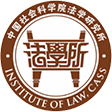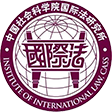 字号:
字号:小
中
大
What role can artificial intelligence play in industrial transformation and global development? And what are the associated risks and challenges? Global AI governance is in focus at the 2023 World Internet Conference in Wuzhen, eastern China's Zhejiang Province. Zhou Yixin has more.
China's Global Artificial Intelligence Governance Initiative was first introduced at the third Belt and Road Forum for International Cooperation in Beijing in October.
The policy directs that AI development should adhere to what it describes as the 'human-oriented' principle, so that it enhances the common well-being of mankind, and is based on respect for human rights and interests.
LEE XIAODONG, Founder and Director, Fuxi Institution, Vice President, Internet Society of China "I think artificial intelligence will bring us a better life in the future, liberating humans from repetitive and boring labor, so that we can engage in more innovative activities and engage in some tasks that cannot be replaced by machines. I think this is the basis of the 'human-oriented' principle."
A concept that some experts believe goes even further.
ZHOU HONGCHANG, Vice Chairman and CEO, Taiwan E-Commerce and Live Streaming E-Commerce Association "In the future development of artificial intelligence, we should reflect on the fact that artificial intelligence should take human thoughts and culture as the most critical core. This can fundamentally prevent artificial intelligence from being too biased towards efficiency and scale, while ignoring human needs."
Global AI governance faces significant challenges ranging from moral and ethical constraints, to legal regulation. China has the world's largest population of internet users, and is a leading country in the development of internet applications.
It's made strides in regulating AI development and use in recent years, and has introduced special cyber- and data security laws, and legislation to protect personal information.
ZHI ZHENFENG, Researcher at the Institute of Law, Chinese Academy of Social Sciences "In the global governance of the Internet, China has contributed many Chinese solutions, such as those to counter disinformation, telecom fraud and to combat cybercrime. China has both the design of top-level policies and the implementation of specific laws and regulations. China has made great explorations and provided valuable solutions for artificial intelligence governance around the world."
Experts say the AI industry hasn't matured yet, and the course of future development cannot be predicted. They believe the priority should be to improve understanding of how AI systems work, as well as their predictability.
ZHOU YIXIN, Wuzhen, Zhejiang Province "Experts also stressed that the global community must continue to improve moral and ethical standards in AI development, and work together to improve laws, regulations, and policies, so that global AI development remains human-centered. Zhou Yixin, CGTN, Wuzhen, Zhejiang Province."
来源:CGTN,2023年11月11日。



